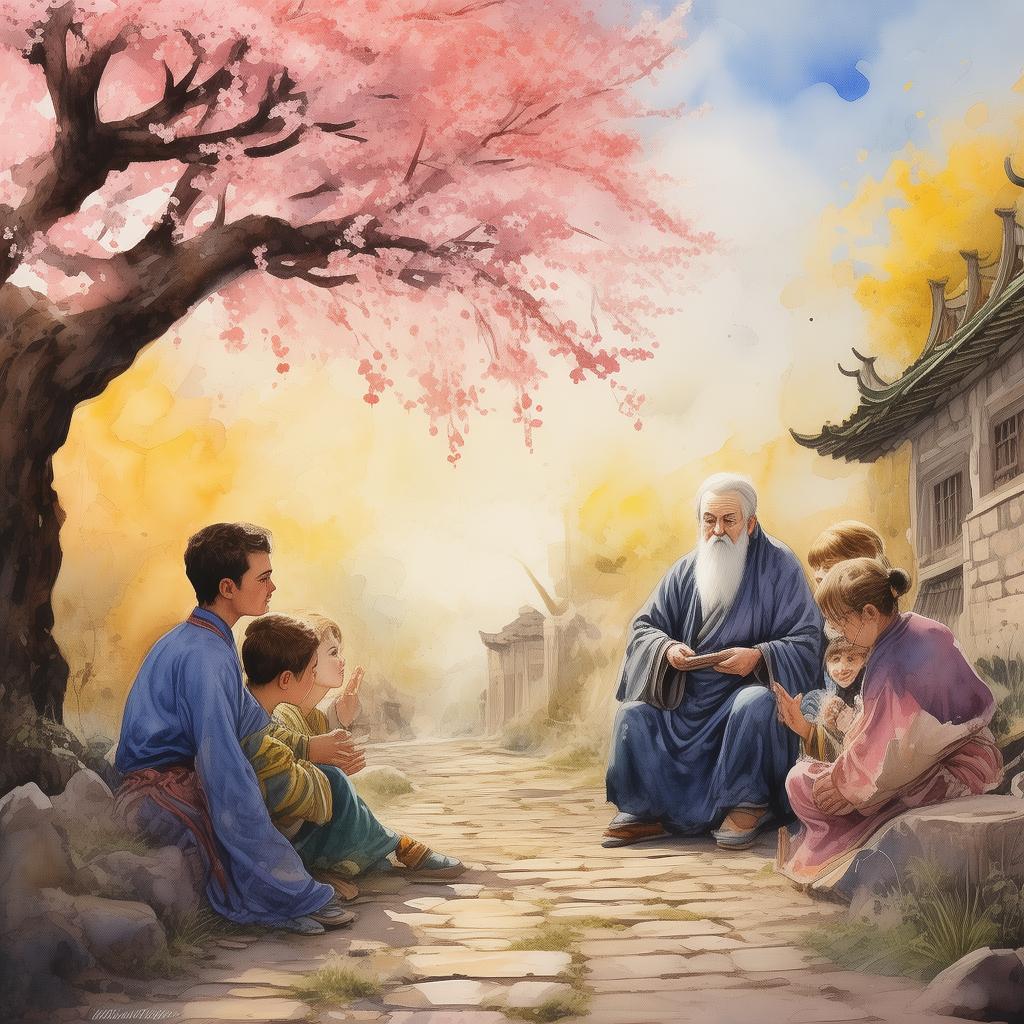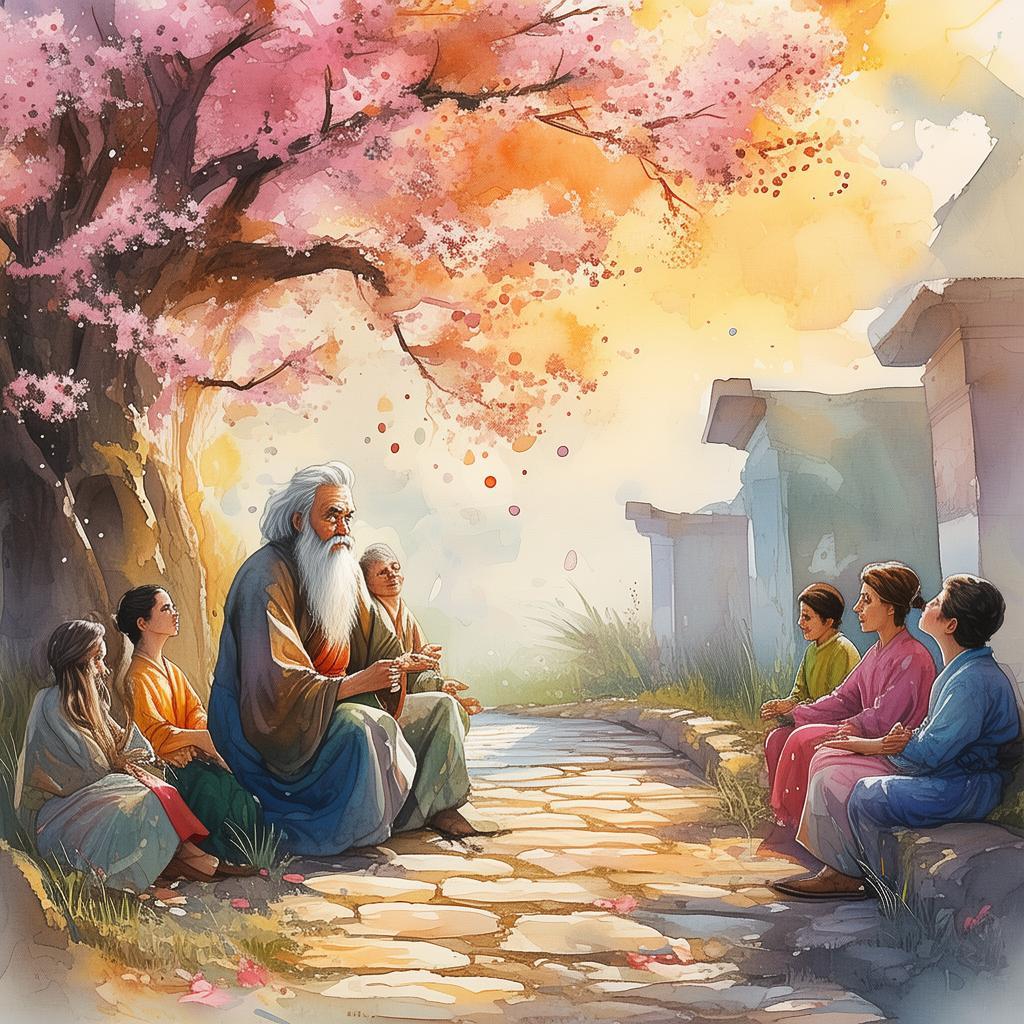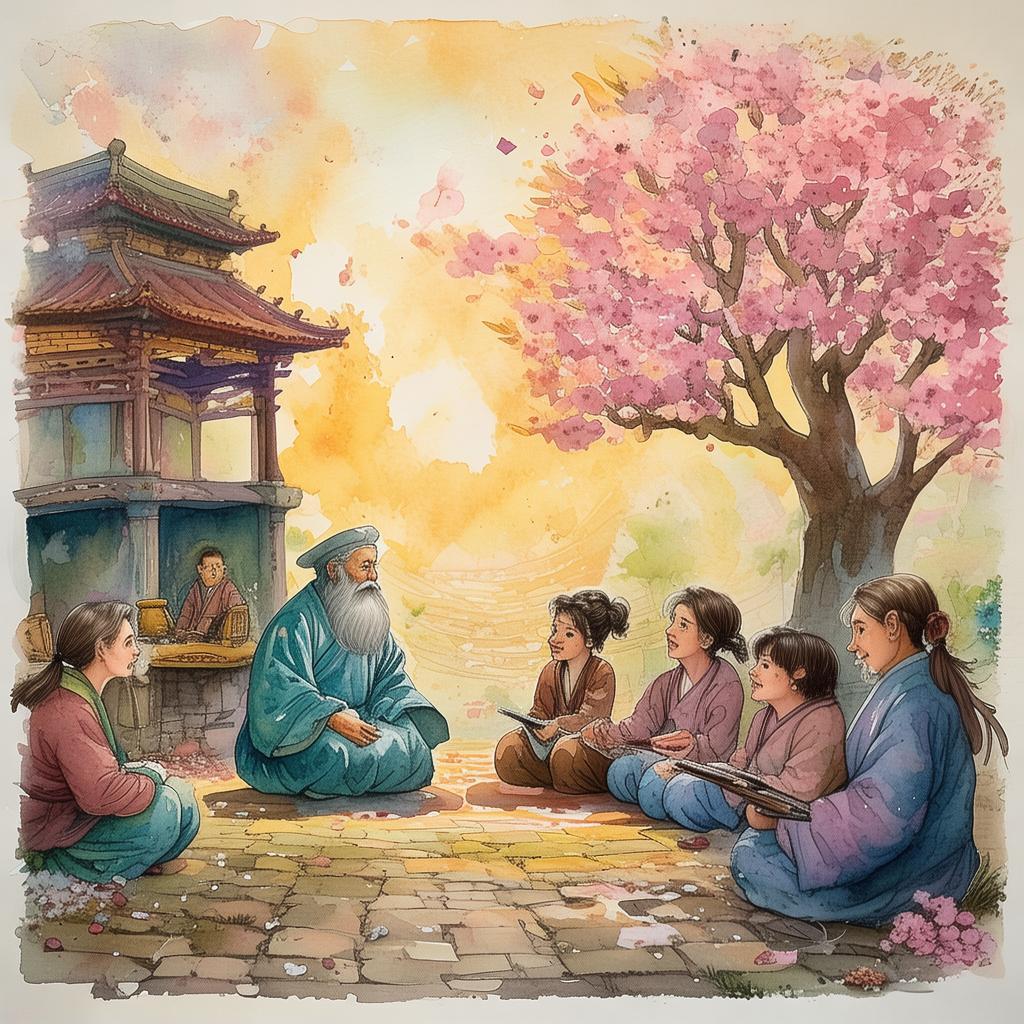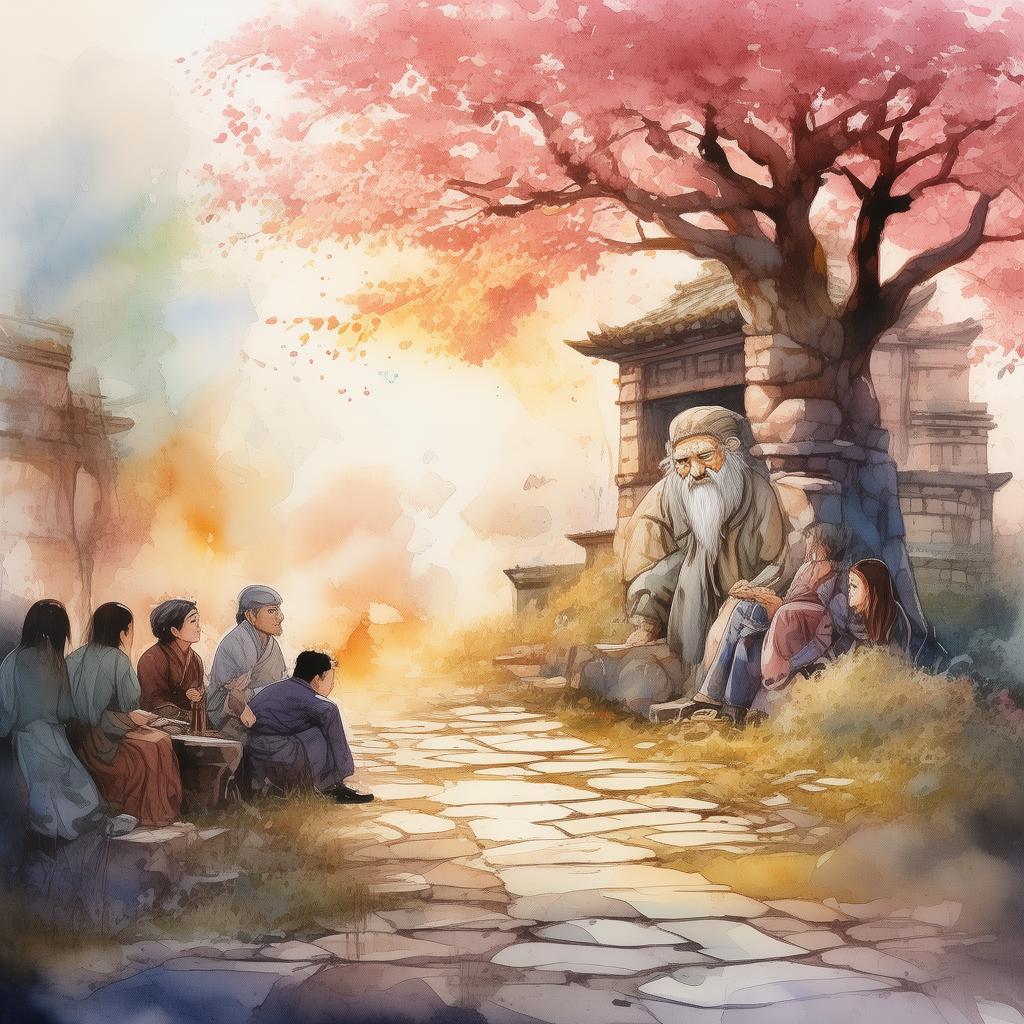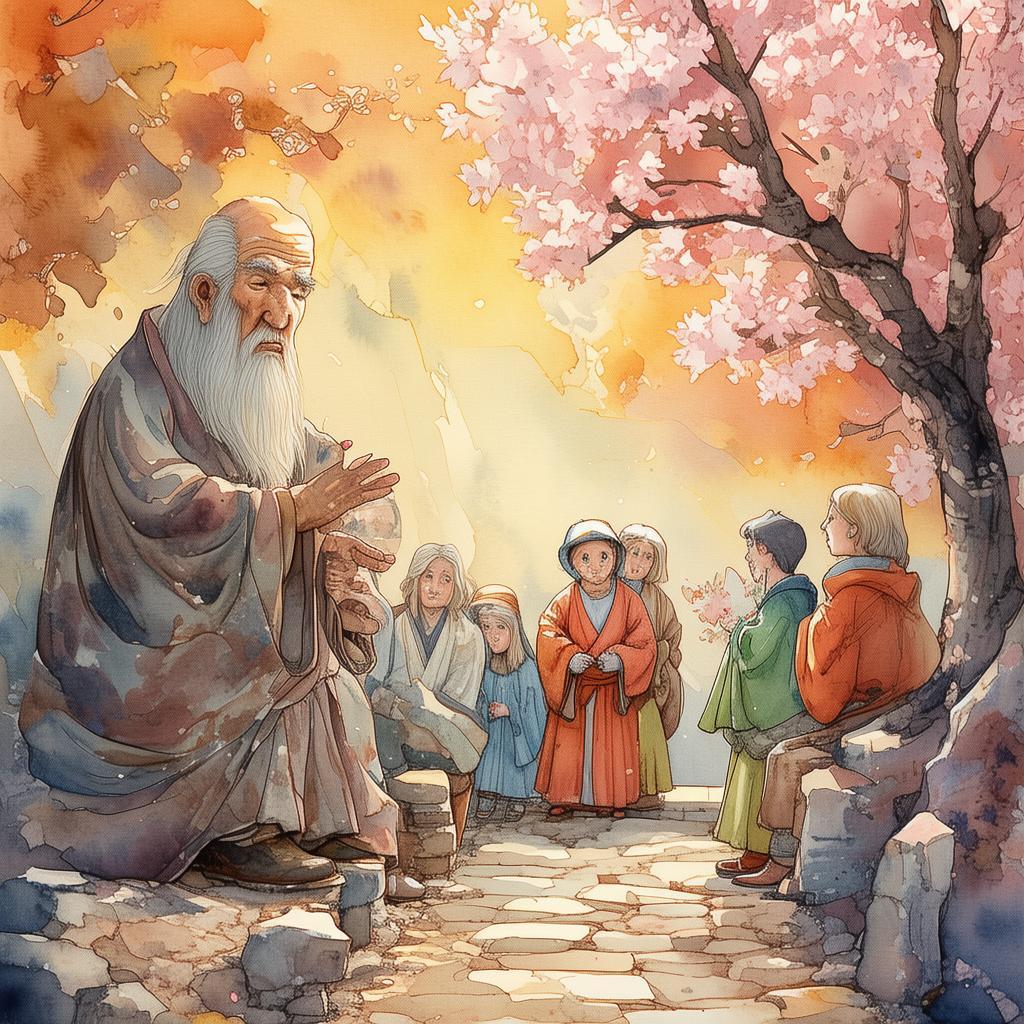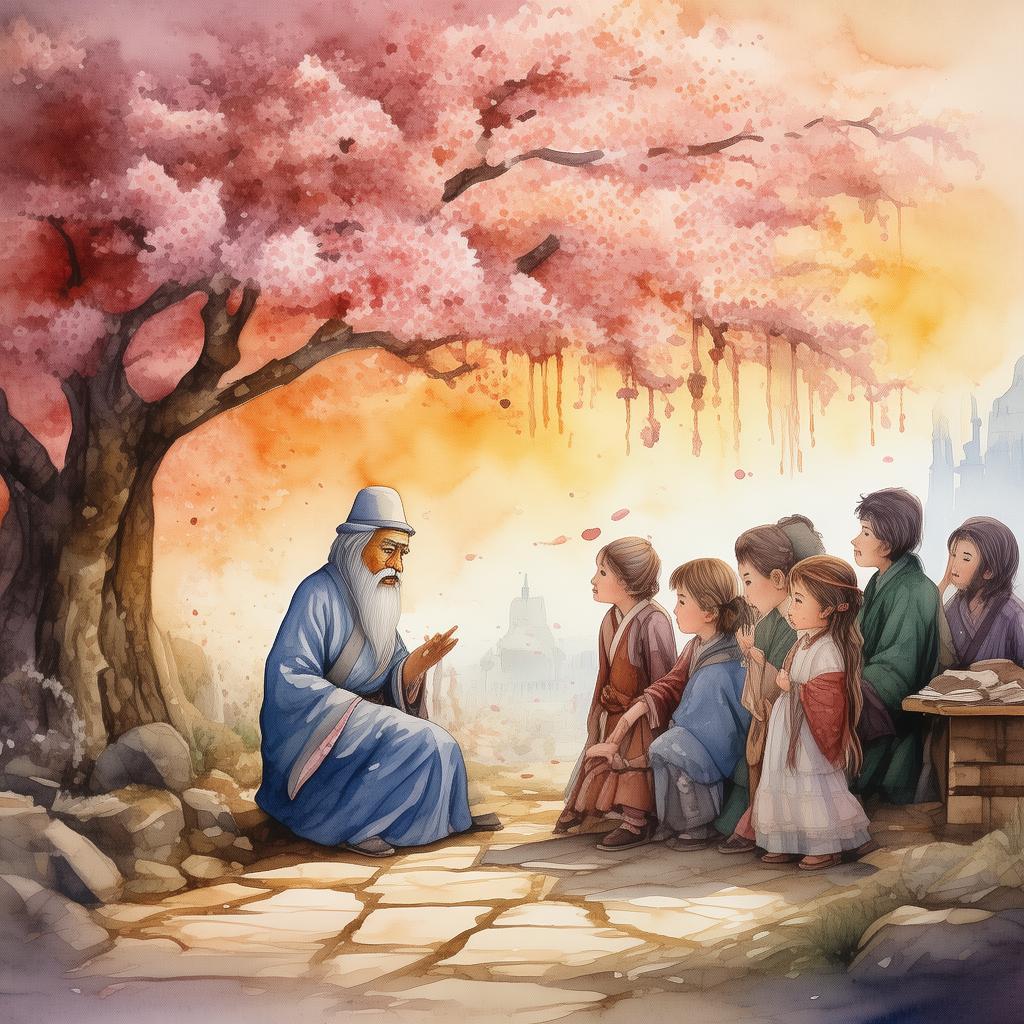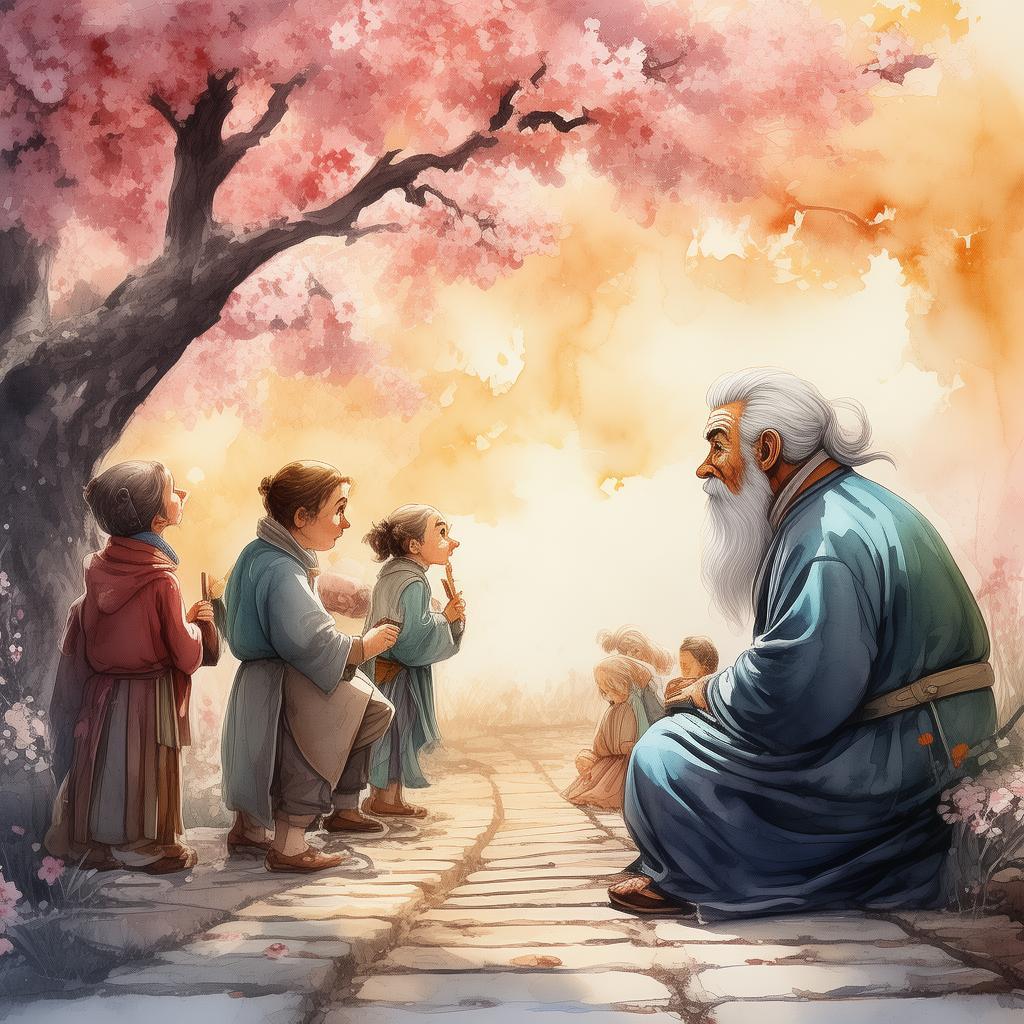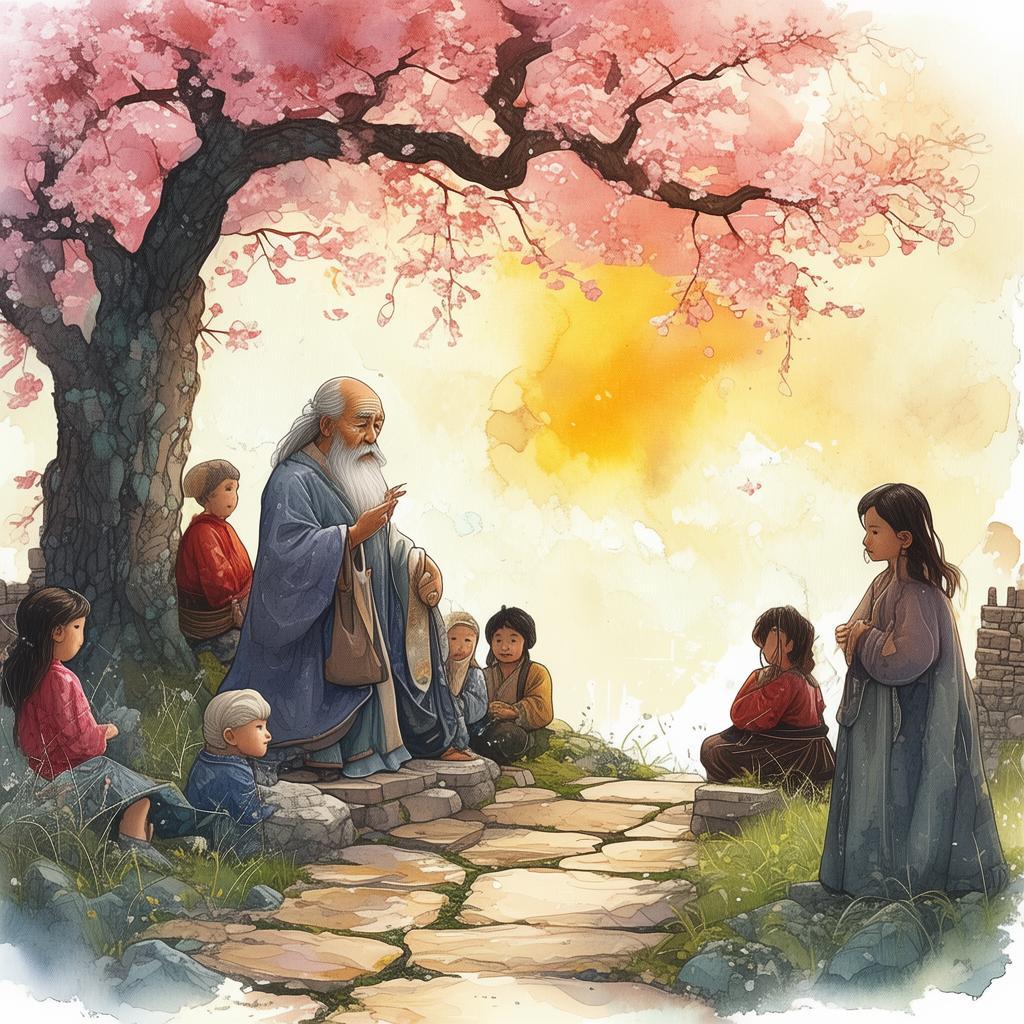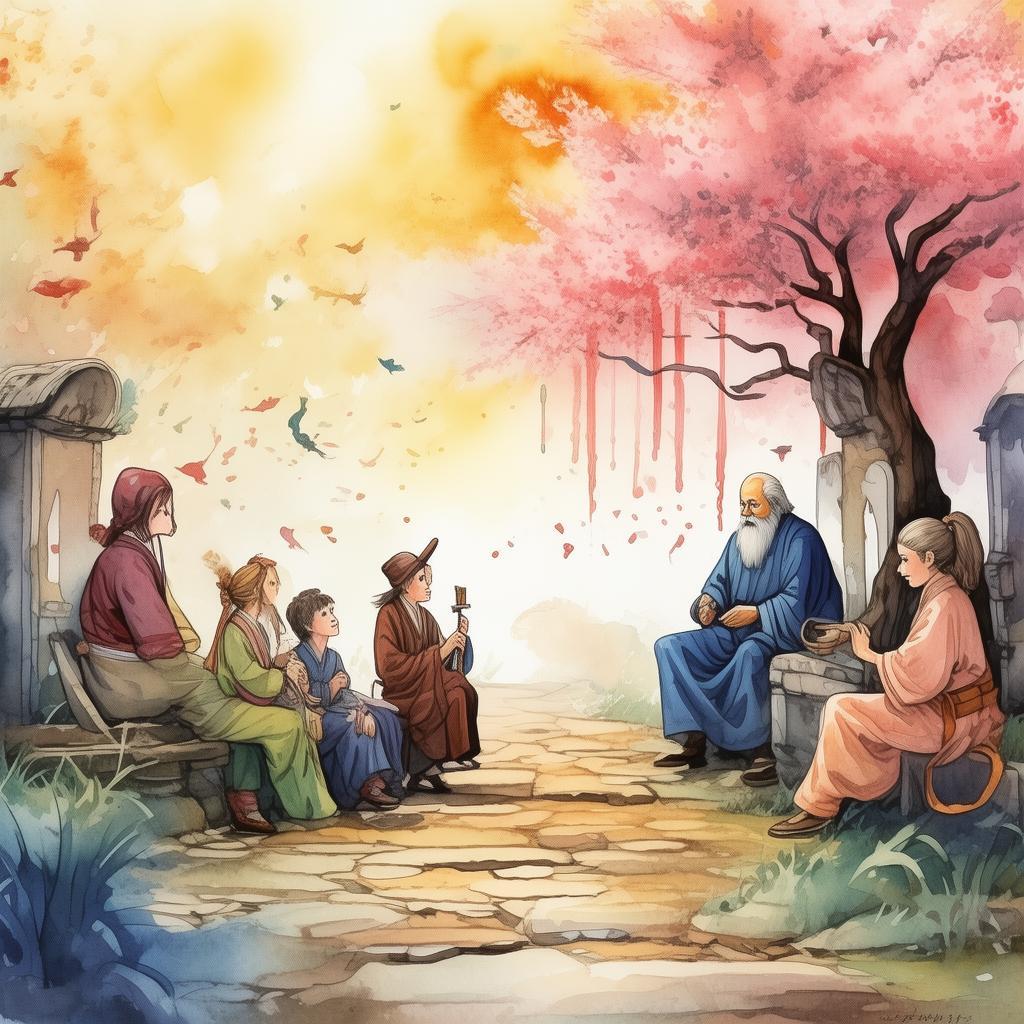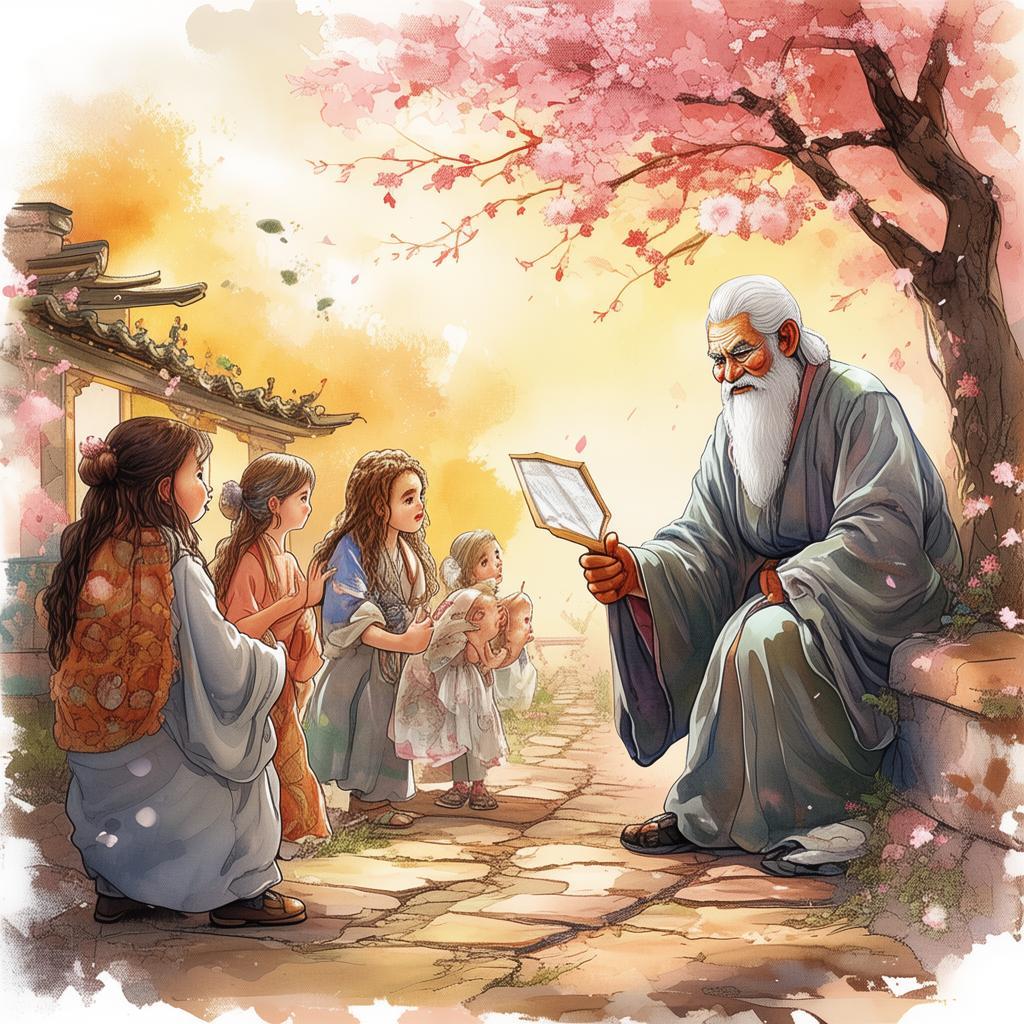True to His Name: Liu Bei's Heart of the Common Folk
In the ancient land of China, during the tumultuous era of the Three Kingdoms, there lived a man whose name echoed through the ages like a bell: Liu Bei. His face was known not just for its striking features but for the heart that matched it, a heart full of the warmth and compassion of the common folk.
Liu Bei was not born into a life of privilege; rather, he came from a modest background, which is why his looks were said to reflect the simplicity and sincerity of the people he was to lead. His eyes, it was said, were like the clear, unpolluted streams of the countryside, reflecting the purity of his intentions and the depth of his empathy.
The story begins in the bustling town of Liu Liang, where young Liu Bei spent his formative years. He was known for his modesty and his kindness to all, regardless of their station in life. The villagers would often see him distributing food to the poor, his face a picture of concern as he ensured that no one went hungry.
One day, as Liu Bei was walking through the market, he noticed a woman in tears, her face etched with despair. Approaching her, he asked what was wrong. The woman, in her despair, poured out her tale of woe: her husband had been taken by the war, and she had no means to support herself and her children.
Liu Bei listened intently, his heart heavy with compassion. He knew that the plight of this woman was not unique, and it was then that a plan began to form in his mind. He approached the local magistrate and offered to take on the woman's debt, using his own savings to ensure she and her children would not starve.
Word of Liu Bei's kindness spread like wildfire. The people of Liu Liang, who had once seen him as an ordinary man, now looked upon him with awe and respect. They began to see in him not just a leader, but a son of the people, someone who understood their struggles and shared their dreams.
As Liu Bei grew in popularity, he did not forget his roots. He continued to serve the common folk, often visiting their homes, listening to their stories, and offering his help. His face, with its gentle smile and warm eyes, became a symbol of hope and strength.
One fateful day, the war reached Liu Liang. The people were in despair, their homes and livelihoods threatened. But when Liu Bei stepped forward, his presence alone seemed to calm the storm. He organized the villagers, dividing them into groups to fortify their defenses and seek aid from neighboring states.
His leadership was not just in words but in action. He fought alongside the villagers, his bravery inspiring them to stand firm against the invaders. In the end, their united efforts paid off, and the enemy was driven back, leaving Liu Liang unscathed.
The people of Liu Liang were overjoyed, but Liu Bei was not. He knew that the war was far from over and that many more battles lay ahead. Yet, he remained steadfast in his commitment to the people, his face a constant reminder of his duty and his love for them.
Years passed, and Liu Bei's reputation grew. He became a leader of the Shu Han state, a position he used not for personal gain but to bring peace and prosperity to the people. His rule was marked by fairness and compassion, and he was revered as a just and wise leader.
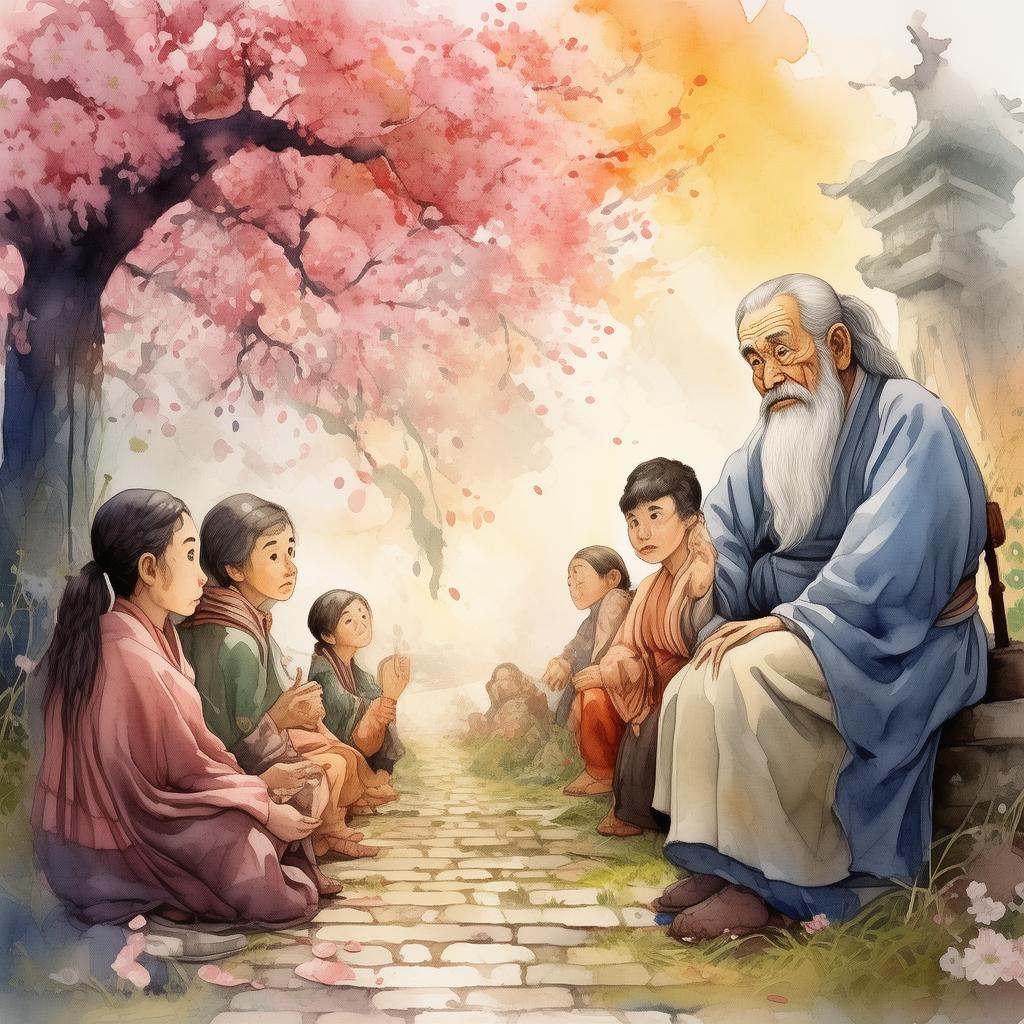
The story of Liu Bei's life became a legend, a tale of a man whose looks and heart were one, a man who truly embodied the essence of the common folk. His name, Liu Bei, became synonymous with the phrase "the face of the people," a testament to his unyielding dedication to the well-being of those he served.
As the story of Liu Bei's life spread, so did the phrase that would become a part of Chinese folklore: "The face of the people, the heart of the common folk." It was a phrase that resonated with the spirit of the people, a reminder that a leader's true power lies not in their position or their looks, but in their compassion and commitment to the well-being of those they lead.
In the end, Liu Bei's legacy lived on, not just in the annals of history, but in the hearts of the people. His story, a tale of a man who was true to his name and true to his people, would continue to inspire generations to come, a beacon of hope and a testament to the enduring power of compassion.
✨ Original Statement ✨
All articles published on this website (including but not limited to text, images, videos, and other content) are original or authorized for reposting and are protected by relevant laws. Without the explicit written permission of this website, no individual or organization may copy, modify, repost, or use the content for commercial purposes.
If you need to quote or cooperate, please contact this site for authorization. We reserve the right to pursue legal responsibility for any unauthorized use.
Hereby declared.
